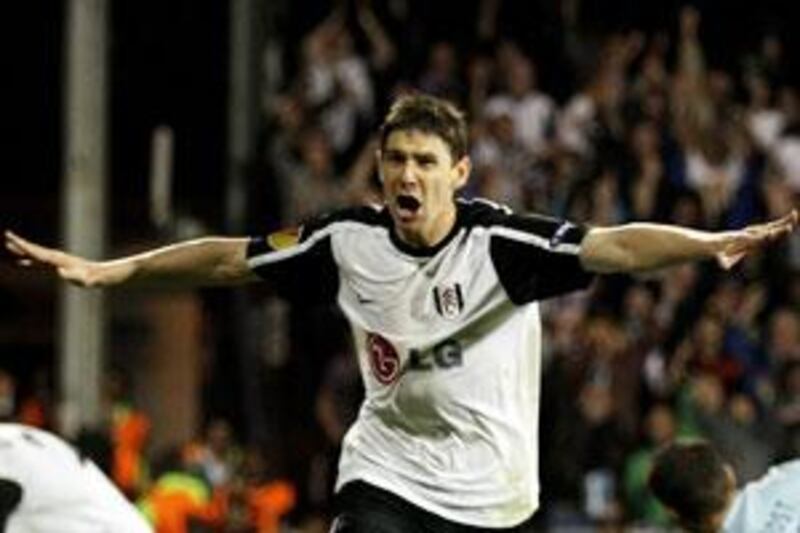Neutrals often find themselves charmed by Fulham Football Club. First, there is the location, a quiet spot on the banks of the River Thames where the traffic is made up of rowers and the occasional houseboat, rather than the big barges and freighters that patrol further east on London's major waterway.
Fulham is in the posh residential end of the English capital, but carries its wealth without the ostentation that surrounds, say, nearby Stamford Bridge. Craven Cottage, Fulham's stadium, is quaint, with its cottage in the corner of the ground and the redbrick Johnny Haynes stand along Stevenage Road. Fulham's history is also peppered with calculated appeals to the neutral. In the 1970s, the club, then in the second tier of the English league, had a policy of employing crowd-pleasers, players past their peaks but still with showmen's instincts. George Best, the brilliant Irish winger, and Rodney Marsh, the former England maverick, drew big crowds and got Fulham on the television frequently. They also commanded salaries the club could scarcely afford.
A decade later, debt-burdened Fulham nearly went out of existence, but were saved by another high profile neutral - Jimmy Hill, a lover of football first, Fulham second. The former player-turned-television presenter gathered a consortium of businessmen to just about keep the place solvent. That was about as much as they could do. Fourteen years and four months ago, Fulham sat 91st in England's professional ladder, one off the bottom of what was then called the Third Division. Tonight, they compete in a European final. It is a scarcely precedented modern fairy tale.
The neutral who has made this possible is Mohamed al Fayed, the Egyptian businessman who long before other Middle Eastern magnates regularly began to acquire English football clubs, bought Fulham from Hill's associates in 1997. It was a starling move at the time, even by the unpredictable standards of Al Fayed, the 81-year-old owner - until last week ? of Harrods, a more famous London icon. An affection for football had never been noted. His fondness for Fulham appeared to hit him late in life.
Yet his investment has been abundant. Andrew Cole, the former England striker and columnist for The National, recalls how much the club changed under Al Fayed. Cole joined Fulham as a teenager on loan from Arsenal during the hard times of the early 1990s and then rejoined them 14 years later when they were in the Premier League. "What a difference there was," said Cole. "First, it was a down-to-earth experience. By the time I went back, Mohammed al Fayed had spent a huge amount of money and the fans' expectations had grown quite high."
Cole, in common with most observers, credits Roy Hodgson, the manager, with raising Fulham up a further level. "What Roy Hodgson has done for them is incredible," said Cole. "He saved them from relegation two years ago and now has them in a major final. When Fulham hired him they went for experience and that usually tells." Hodgson's experience is truly global. He had a stint in charge of the UAE national team and has worked in every Scandinavian country. He guided Switzerland to the 1994 World Cup finals. He coached Inter Milan to a Uefa Cup final. At Fulham, he has rejuvenated the careers of players like Danny Murphy, the midfielder, Damien Duff, the winger, and Bobby Zamora, the striker, and has his team playing an attractive passing game with enough punch that they put five goals past Juventus on their way to this final and beat Manchester United 3-0 in the Premier League this season. Hodgson, sage, intelligent and a gentleman, sometimes seems a little too neutral for the hyped-up modern television age. Fulham fans feel anything but neutral about what he has achieved. @Email:sports@thenational.ae






